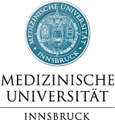Donnerstag, 02.06.2022 bis Freitag, 03.06.2022
Creating the Woman in Antiquity: Gender Aspects of Human Creation (Melammu Workshop 16)
09:00 - 18:00 Uhr
Hörsaal B und Hörsaal F (Uni-Hauptgebäude), Innrain 52, 6020 Innsbruck
Anmeldung ist nicht erforderlich
Eintritt / Kosten: Eintritt frei
Weitere Informationen
One of the most striking features of the account of human creation in Genesis is that it offers a separate account of the creation of the woman. While many aspects of the Biblical story of creation have clear similarities with other Ancient Near Eastern creation texts, the separate creation of man and woman does not seem to have clear parallels in the creation accounts of the surrounding cultures with the exception of Aristophanes’ humoristic account of the creation of man in Plato’s Symposium.
Therefore, one of the aims of the workshop is to reexamine different accounts of human creation with a clear focus on the creation of the different sexes and closely look at the following questions: When did the different sexes emerge? Had the first human being two sexes? Was humanity created as a whole? Is the first natural birth described?
As the narratives seem to differentiate human creation, they also give an amount of information concerning the "weltanschauung" and the ways humans, in their unity and diversity, are conceptualized and socialized. The theological question should also be scrutinized: do creation narratives infer a particular relation, physical or spiritual, between the created human and its creator? The aim of the workshop is thus to bring comparative evidence for the creation of humans, man and woman, in their distinctiveness, discuss how these narratives inform us on the place of man and woman, the powerful and less powerful, in distinct visions of the world. Additionally, the comparative approach will enable us to identify the emergence of certain motifs and ideas and their transmissions in the Ancient World.
Veranstalter
Stéphanie Anthonioz (Paris), Sebastian Fink (Innsbruck), Kordula Schnegg (Innsbruck)

